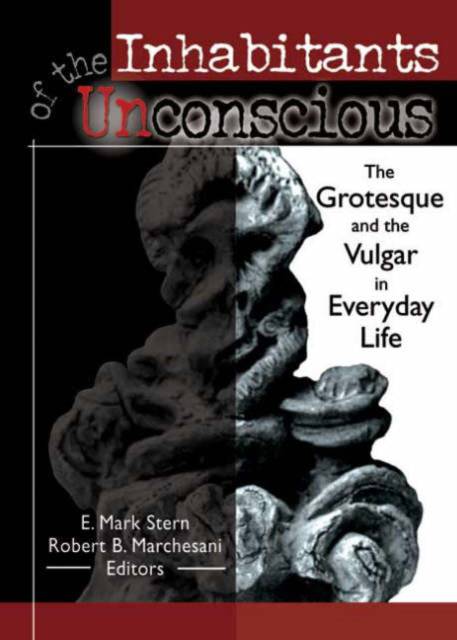
Je cadeautjes zeker op tijd in huis hebben voor de feestdagen? Kom langs in onze winkels en vind het perfecte geschenk!
- Afhalen na 1 uur in een winkel met voorraad
- Gratis thuislevering in België vanaf € 30
- Ruim aanbod met 7 miljoen producten
Je cadeautjes zeker op tijd in huis hebben voor de feestdagen? Kom langs in onze winkels en vind het perfecte geschenk!
- Afhalen na 1 uur in een winkel met voorraad
- Gratis thuislevering in België vanaf € 30
- Ruim aanbod met 7 miljoen producten
Zoeken
Inhabitants of the Unconscious
The Grotesque and the Vulgar in Everyday Life
E Mark Stern, Robert B Marchesani
€ 62,95
+ 125 punten
Uitvoering
Omschrijving
This book explores numerous ways in which vulgar language, grotesque appearances, and horrific experiences affect us in our relationships with others and with ourselves. Its compelling case studies and revealing interviews bring together ideas and issues that are a lingering, but unexplored, focus in psychotherapy literature.
The grotesque and the vulgar are major inhabitants of the vast unconscious. Their variations and haunting presence are anticipated and reflected in the transactions of everyday life. So too do they manifest themselves in our social institutions, maintaining their presence in the seven lively arts as much as in mental hospitals, rehabilitation facilities, and psychotherapy practices. Most of all, the grotesque and vulgar challenge the contemporary search for meaning and sanity. This book will help the psychotherapist better deal with the rich soil of grotesqueness and vulgarity in the interplay between the psychotherapy patient and the experiential world. Reading it will open new vistas of treatment possibilities. As each contributing author explores the potentialities and obstacles inherent in the competing and complementing forces of the grotesque and socially condoned sensibilities, you will learn about the value of the grotesque in the consultation room. You will further learn how the flaunted and unconscious vulgarities of everyday life enrich the creative vision inherent in therapeutic conversations. Most important, you will be challenged by what it means to abide with the sometimes pesky vulgar and grotesque guises in each of your client's lives. Here's a sample of what you'll find in Inhabitants of the Unconscious: The Grotesque and the Vulgar in Everyday Life:- Louis Fierman's recollection of his treatment of a Nazi soldier, which offers fascinating therapeutic possibilities when issues of the grotesqueare at hand
- an extraordinary analysis of the role of the grotesque in artwork, with special attention paid to the work of Hieronymus Bosch
- a fascinating look at Sigmund Freud's perspective on the grotesque and what it says about Freud himself
- the remarkable formative experiences of children with craniofacial difference (facial deformities)an exposition that will enrich your therapeutic interventions with children and adolescents who face atypical challenges
- extraordinary case studiesby Robert Marchesani about his therapeutic endeavors with a Vietnam veteran caught in the aftermath of his incestuous past and by E. Mark Stern about a dying woman who was unable to detach from, but ultimately vivified by an unyielding masochistic fixation
Specificaties
Betrokkenen
- Auteur(s):
- Uitgeverij:
Inhoud
- Aantal bladzijden:
- 216
- Taal:
- Engels
- Reeks:
Eigenschappen
- Productcode (EAN):
- 9780789020789
- Verschijningsdatum:
- 10/09/2003
- Uitvoering:
- Hardcover
- Formaat:
- Genaaid
- Afmetingen:
- 154 mm x 229 mm
- Gewicht:
- 498 g

Alleen bij Standaard Boekhandel
+ 125 punten op je klantenkaart van Standaard Boekhandel
Beoordelingen
We publiceren alleen reviews die voldoen aan de voorwaarden voor reviews. Bekijk onze voorwaarden voor reviews.









